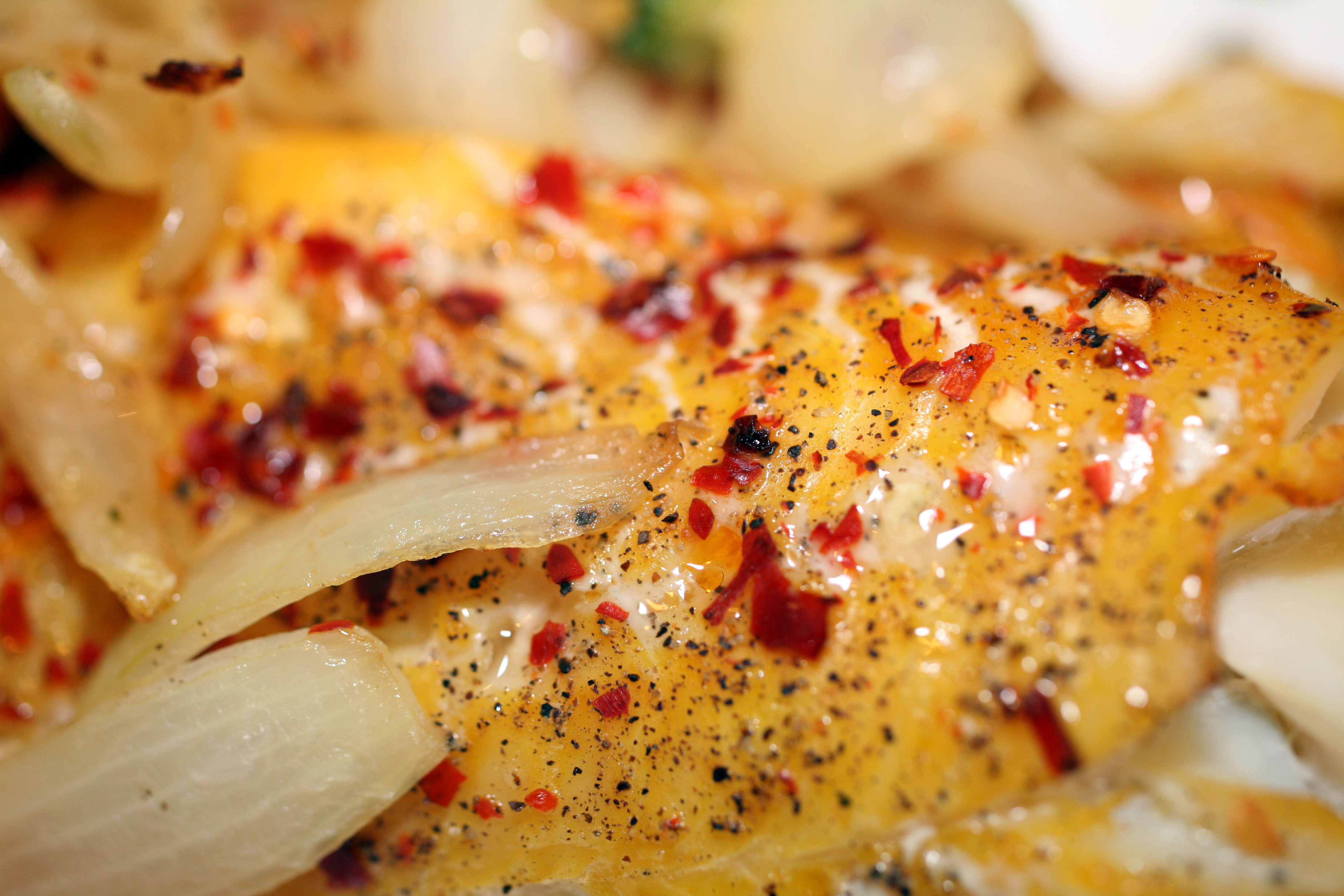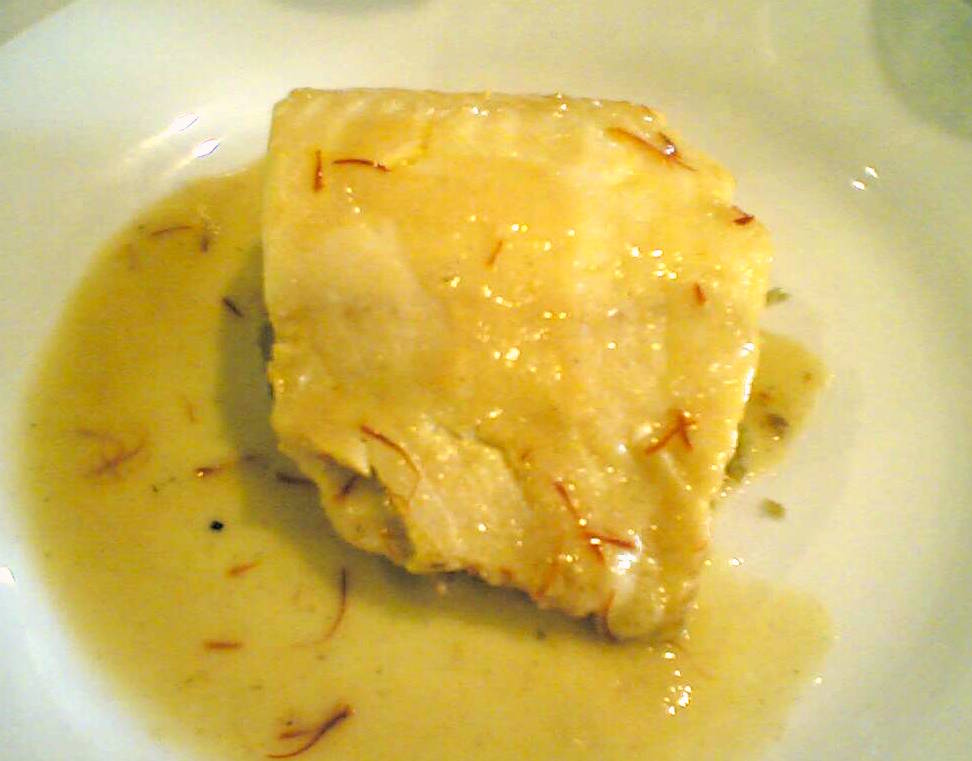Finnan Haddock on:
[Wikipedia]
[Google]
[Amazon]

 Finnan haddie (also known as Finnan haddock, Finnan, Finny haddock or Findrum speldings) is cold-smoked
Finnan haddie (also known as Finnan haddock, Finnan, Finny haddock or Findrum speldings) is cold-smoked

 Finnan haddie (also known as Finnan haddock, Finnan, Finny haddock or Findrum speldings) is cold-smoked
Finnan haddie (also known as Finnan haddock, Finnan, Finny haddock or Findrum speldings) is cold-smoked haddock
The haddock (''Melanogrammus aeglefinus'') is a saltwater ray-finned fish from the family Gadidae, the true cods. It is the only species in the monotypic genus ''Melanogrammus''. It is found in the North Atlantic Ocean and associated seas where ...
, representative of a regional method of smoking with green wood and peat
Peat (), also known as turf (), is an accumulation of partially decayed vegetation or organic matter. It is unique to natural areas called peatlands, bogs, mires, moors, or muskegs. The peatland ecosystem covers and is the most efficien ...
in north-east Scotland
Scotland (, ) is a country that is part of the United Kingdom. Covering the northern third of the island of Great Britain, mainland Scotland has a border with England to the southeast and is otherwise surrounded by the Atlantic Ocean to the ...
.
Origin
The origin of finnan haddie is the subject of debate, as some sources attribute the origin to the hamlet ofFindon, Aberdeenshire
Findon (Gaelic: ''Fionndan'', Scots: ''Finnan'') is a fishing village eight miles south of Aberdeen, famous for originating the smoked haddock known as Finnan haddie. The Findon moor has a number of paths through it, many of which run along the ...
, (also sometimes called Finnan) near Aberdeen
Aberdeen (; sco, Aiberdeen ; gd, Obar Dheathain ; la, Aberdonia) is a city in North East Scotland, and is the third most populous city in the country. Aberdeen is one of Scotland's 32 local government council areas (as Aberdeen City), and ...
,"Before bringing this introductory letter to a close, I shall remind the Stranger of the opportunity which he now so happily enjoys, of eating, in all their perfection, the far-famed Finnan Haddocks. These, he may be informed, are prepared at a small fishing village called Finnan, or Findon, about six miles to the south; and, like Rowland's 'Incomparable Oil Macassar,' have been the subject of innumerable imitations, 'of the most deleterious tendency.'" while others insist that the name is a corruption of the village name of Findhorn at the mouth of the River Findhorn in Moray
Moray () gd, Moireibh or ') is one of the 32 local government council areas of Scotland. It lies in the north-east of the country, with a coastline on the Moray Firth, and borders the council areas of Aberdeenshire and Highland.
Between 1975 ...
. The "dispute" goes back to the eighteenth century, although it is hard to trace, as adherents fail to acknowledge even the possibility of the alternative view (except for the etymology note in the ''Oxford English Dictionary''). It may have been a popular dish in Aberdeenshire since at least as early as the 1640s.
Popularization
Although known and admired in Scotland for a long time, Finnan haddie became a popular food item inLondon
London is the capital and largest city of England and the United Kingdom, with a population of just under 9 million. It stands on the River Thames in south-east England at the head of a estuary down to the North Sea, and has been a majo ...
only in the 1830s. In earlier times, because of the light smoking that the fish received, it did not have a long shelf life—by most contemporary estimates, at most three days (although some suggested no more than one day). Thus, although the fish was often available in Aberdeen "within twelve hours of being aught
"Zero" is the usual name for the number 0 in English. In British English "nought" is also used. In American English "naught" is used occasionally for zero, but (as with British English) "naught" is more often used as an archaic word for nothing. "N ...
, the distance to London was at that time nearly insurmountable if spoilage was to be avoided. The fish started making its first appearances in London when shipped by established mail coach, but became widely available with the construction of the railway link connecting Aberdeen to London in the 1840s. The association with Findon became strong because of the Aberdeen connection. Occasionally, confusion was so deep that ''Findon'' was referred to as ''Findhorn''.
Use in modern cuisine
Finnan has a long association with the traditional Scottish fish soup Cullen skink, and most old Scottish recipe books cite Finnan haddie as the smoked haddock to be used for this dish. The traditional preparation is toroast
Roasting is a cooking method that uses dry heat where hot air covers the food, cooking it evenly on all sides with temperatures of at least from an open flame, oven, or other heat source. Roasting can enhance the flavor through caramelization ...
or grill the whole pieces of fish over high heat. Finnan haddie is also often served poached in milk for breakfast
Breakfast is the first meal of the day usually eaten in the morning. The word in English refers to breaking the fasting period of the previous night.Anderson, Heather Arndt (2013)''Breakfast: A History'' AltaMira Press. Various "typical" or "t ...
and is an important part of traditional kedgeree
Kedgeree (or occasionally ) is a dish consisting of cooked, flaked fish (traditionally smoked haddock), boiled rice, parsley, hard-boiled eggs, curry powder, butter or cream, and occasionally sultanas.
The dish can be eaten hot or cold. Other ...
and the Arnold Bennett omelette.
In popular culture
Finnan haddie is used as a sexual ''double entendre
A double entendre (plural double entendres) is a figure of speech or a particular way of wording that is devised to have a double meaning, of which one is typically obvious, whereas the other often conveys a message that would be too socially ...
'' in the Cole Porter
Cole Albert Porter (June 9, 1891 – October 15, 1964) was an American composer and songwriter. Many of his songs became standards noted for their witty, urbane lyrics, and many of his scores found success on Broadway and in film.
Born to ...
song "My Heart Belongs to Daddy
"My Heart Belongs to Daddy" is a song written by Cole Porter, for the 1938 musical ''Leave It to Me!'' which premiered on November 9, 1938. It was originally performed by Mary Martin, who played Dolly Winslow, the young "protégée" of a rich ne ...
", and is mentioned in the Lew Pollack
Lew Pollack (June 16, 1895 – January 18, 1946) was an American song composer and musician active during the 1920s and the 1930s.
Career
Pollack was born in New York City where he went to DeWitt Clinton High School and was active as a boy sopran ...
/Sidney D. Mitchell
Sidney D. Mitchell (June 15, 1888 in Baltimore, Maryland – February 25, 1942 in Los Angeles, California) was a Hollywood film industry lyricist and composer.
Mitchell is best known for his collaborations with Lew Pollack on movie scores a ...
song "At the Codfish Ball", as well as in Otto Preminger's 1953 comedy ''The Moon Is Blue
''The Moon Is Blue'' is a play by F. Hugh Herbert. A comedy in three acts, the play consists of one female and three male characters.
Performance history
''The Moon Is Blue'' premiered at The Playhouse in Wilmington, Delaware on February 16, 19 ...
''. It was also humorously referenced in the title of the 1942 Warner Brothers cartoon
A cartoon is a type of visual art that is typically drawn, frequently animated, in an unrealistic or semi-realistic style. The specific meaning has evolved over time, but the modern usage usually refers to either: an image or series of images ...
'' Fin'n Catty'', directed by Chuck Jones
Charles Martin Jones (September 21, 1912 – February 22, 2002) was an American animator, director, and painter, best known for his work with Warner Bros. Cartoons on the ''Looney Tunes'' and ''Merrie Melodies'' series of shorts. He wrote, produ ...
, as well as the Paramount movie "Finn and Hattie" (1931).
See also
*Arbroath smokie
The Arbroath smokie is a type of smoked haddock, and is a speciality of the town of Arbroath in Angus, Scotland.
History
The Arbroath smokie is said to have originated in the small fishing village of Auchmithie, three miles northeast of A ...
* Cullen skink
* List of smoked foods
This is a list of smoked foods. Smoking is the process of flavoring, cooking, or preserving food by exposing it to smoke from burning or smoldering material, most often wood. Foods have been smoked by humans throughout history. Meats and fish a ...
References
{{Scottish cuisine Scottish cuisine Fish processing Scottish brands Fishing in Scotland Smoked fish